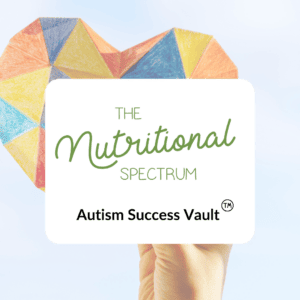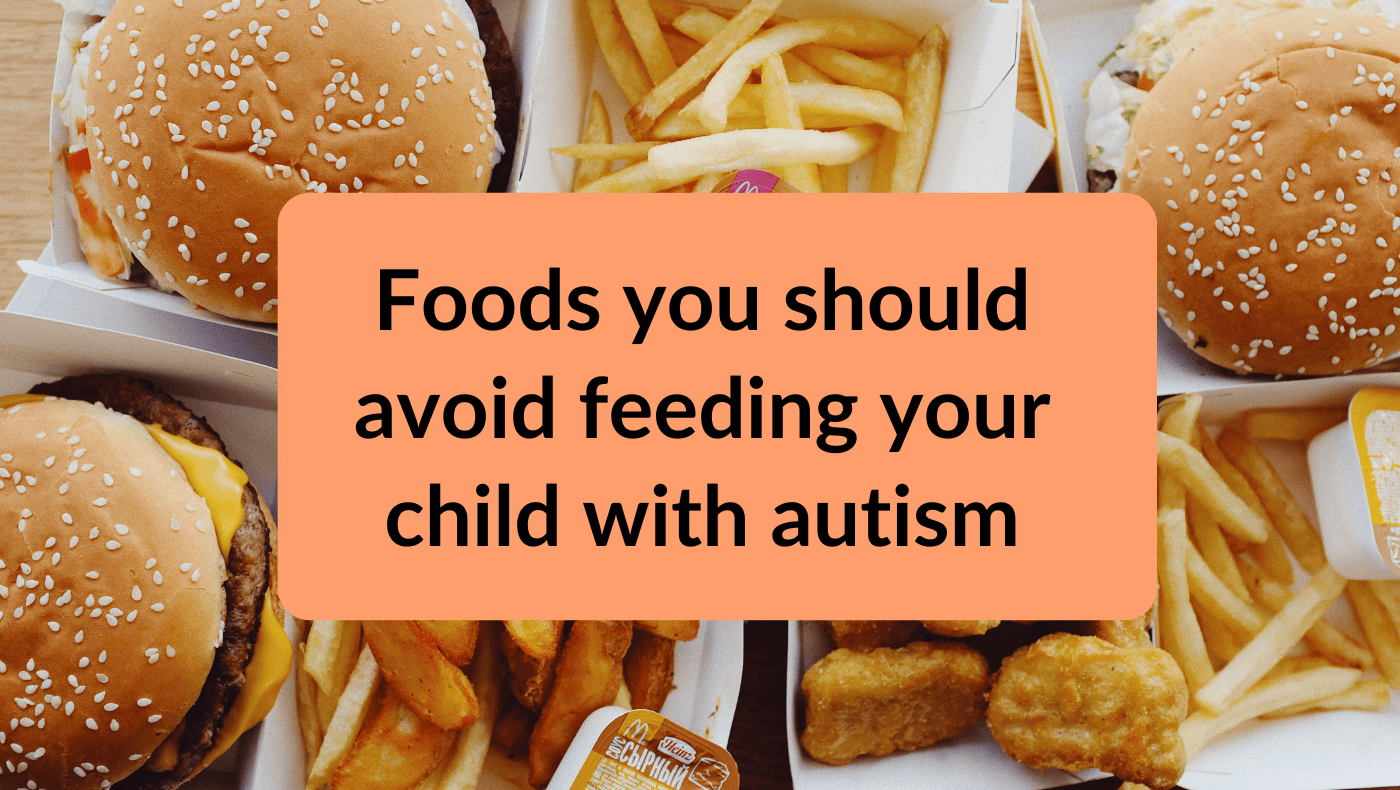Last updated on April 12th, 2024 at 01:51 pm
Foods to avoid for autism|Trigger foods
As a parent of a child on the autism spectrum, you might already be aware that there are certain foods you should avoid feeding your child with autism that can have a negative effect on your child’s overall well-being and behavior.
Several studies are finding food that children with autism have unique dietary needs and are even more sensitive to certain foods than their peers.
With that in mind, it is so important to be mindful of the foods you are feeding your child that can potentially exacerbate their symptoms in a negative way and impact your child’s health.
In this post, I will be sharing some of the top foods that most, if not all, children on the autism spectrum will benefit from removing.
#1 The Impact of Sugar and Autism
Sugar is one of the most common food ingredients that is found in a large variety of processed and packaged foods.
It is important to understand that excessive amounts of sugar have been directly linked to health problems in children.
Some of these health issues include obesity, diabetes, and behavioral issues.
Children on the autism spectrum commonly have symptoms such as hyperactivity, impulsivity, and inattention, which are all traits that can be worsened by the overconsumption of sugar.
Additionally, so many parents have reported and witnessed their child’s behavior and mood improve drastically by just reducing their intake of sugar.
For children on the autism spectrum, many of which have a compromised immune system, it is important to take steps to limit or eliminate sugar.
Limiting your child’s sugar consumption should be the first step you take when you are working to improve their health and behaviors.
#2 Avoiding Artificial Ingredients
Artificial ingredients are commonly found in processed foods and have also been linked to a range of health problems that include behavioral issues in children.
Many studies have shown that artificial ingredients, such as dyes and preservatives, can cause an increase in hyperactivity and irritability.
These types of ingredients also add to the strain on a child’s immune system, which is why limiting or avoiding them together is important.
When buying groceries, look for food items that have natural ingredients, as these will help to ensure that you and your family are eating healthily.
You should also read labels carefully so that you can determine which foods contain artificial ingredients and choose healthier alternatives when possible.
By making the effort to purchase more natural foods, you can help protect your family’s health and ensure that everyone is getting the nutrition they need.
Additionally, you should be mindful of food marketing tactics that generally encourage the overconsumption of processed foods.
Food companies often use misleading labels and images to make their products appear healthier than they actually are, so it is important to do your research and understand what is in the food you buy.
#3 Processed Foods and their Downsides
Processed foods go well with sugar and artificial ingredients because most processed food has both sugar and artificial ingredients.
For children on the autism spectrum, processed foods can be problematic and cause negative effects on their overall health.
It is important to be aware of the ingredients in processed foods and to limit their intake.
Eating more whole, unprocessed foods can provide essential nutrition that can help children on the spectrum thrive and achieve better health.
Furthermore, eating a balanced diet with plenty of fruits and vegetables is beneficial for everyone, especially for those on the autism spectrum.
Start slowly removing processed foods from your child’s diet because many children have become addicted and you must be strategic to not stress yourself out.
Eating a variety of foods can help foster healthy eating habits and provide essential nutrients to your child so don’t stop trying to lean towards a healthier diet.
By eating more whole, unprocessed foods, your child can experience better overall health.
#4 The Pitfalls of Fast Food
Fast food is food that can be prepared very quickly and easily purchased in the drive-thru or restaurants.
Although fast food can be convenient, it is usually not the healthiest choice.
Fast food often contains large amounts of sugar, salt, and unhealthy fat which can have negative effects on your child’s health.
Therefore, limiting or avoiding fast food as much as possible is ideal for those on the autism spectrum.
Look for healthier restaurants that offer more nutritious options.
It is also important to monitor your child’s eating habits when it comes to fast food, as they could be consuming too many calories or unhealthy ingredients without realizing it.
Encouraging healthy snacks throughout the day can also help reduce cravings for fast food.
Planning ahead and packing snacks or having healthy snacks ready at home can help prevent your child from reaching for unhealthy options when hunger strikes.
It is also important to teach your child about nutrition and how different foods affect their bodies, so they can make better decisions in the future.
Ultimately, being mindful of your child’s diet and surrounding them with healthy snacks and meals will help support their overall health, both now and in the future.
Remember to be patient, communicative, and creative when it comes to your child’s nutritional needs!
As you can see from my top foods list, most of the foods I mentioned might be the top foods your child will eat. This shouldn’t be a shocker because some kids are naturally drawn to sugars, fats, and unhealthy carbohydrates – all of which can be found in high levels in many processed foods.
It is important to remember that changing your child’s diet will take time so start taking small steps.
For example, swap out processed foods for healthier options. Try introducing new fruits and vegetables to replace those sugar-filled snacks.
Taking small steps will pay off long term and improve your child’s behavior and health in a positive way.
If you are looking for support on how you can help your child overcome autism symptoms and how to support your child’s development, you should join the Autism Success Vault.
Additional Resource:
- Putting your toddler with autism on a gluten-free diet
- 10 Natural Ways to detox your child with Autism
.





0 Comments